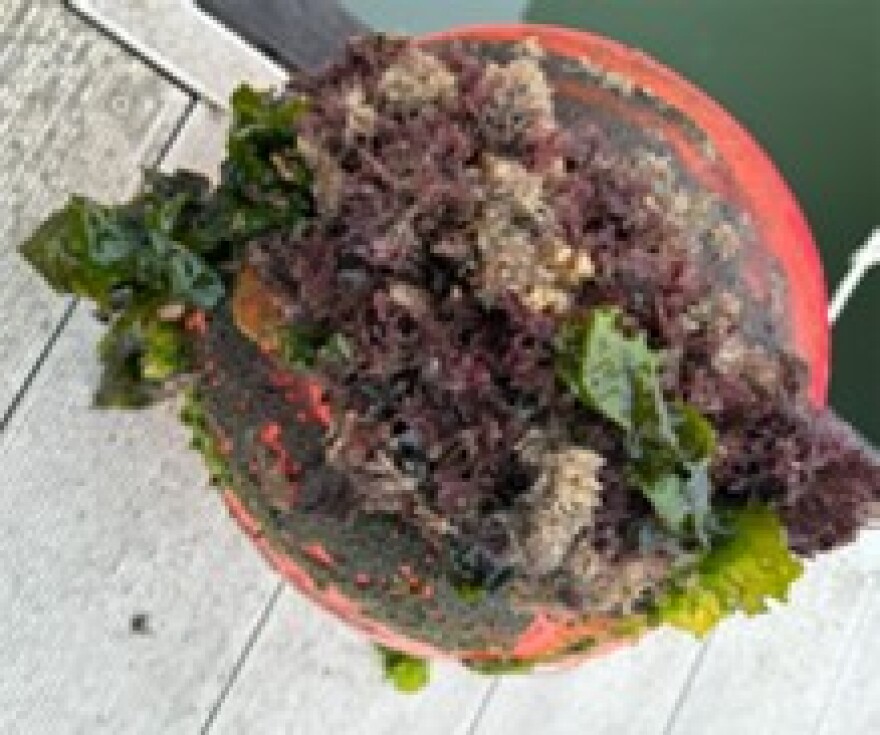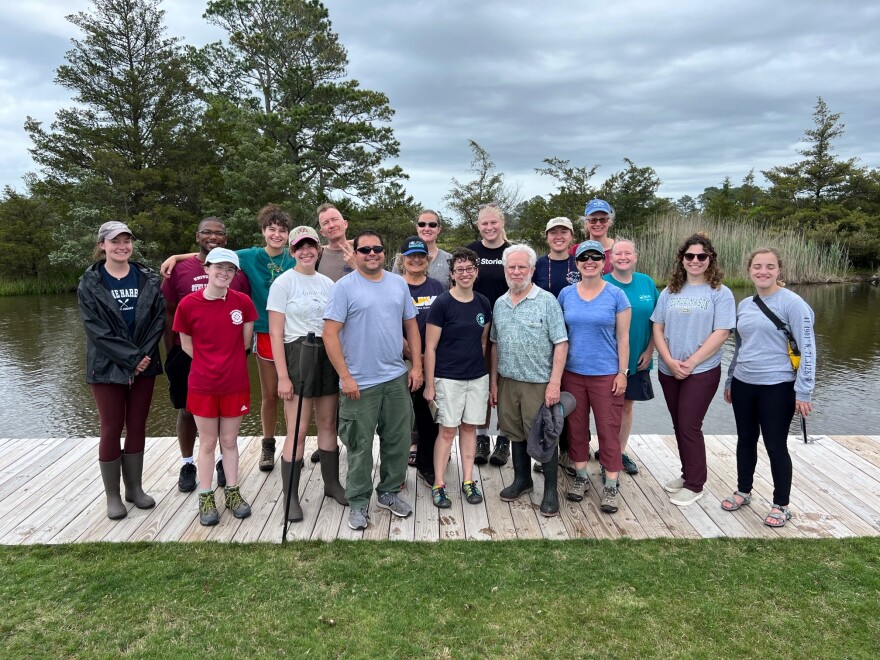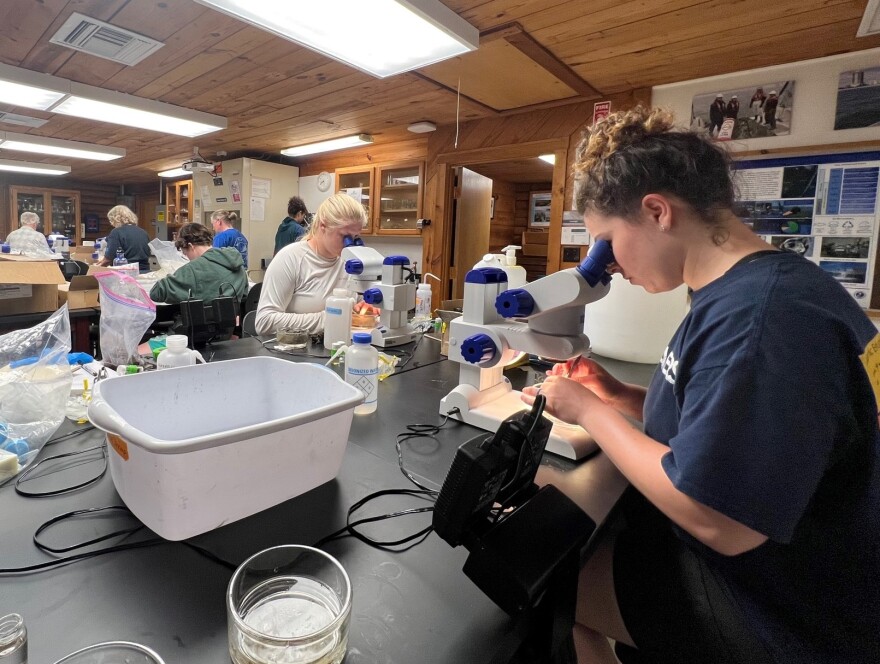East Carolina University participated in the first survey of its kind to identify specific marine organisms across the mid-Atlantic region.
Throughout June, a team of 18 biologists and students from the eastern U.S. spent 15-hour days traveling to marinas from Virginia to New Jersey, some battling seasickness while scraping the sides of floating docks. The survey team looked for “biofouling species” — creatures, such as barnacles, that attach to hard surfaces, like boats or docks.

At nine of the 10 surveyed locations, more non-native biofouling species were found than native ones, including new records of the invasive sea squirt Distaplia bermudensis.
ECU biologist April Blakeslee helped design the survey. She said this trend is largely due to climate change.
“There's a lot of species that are moving from the tropics and the subtropics up into more temperate regions,” Blakelsee said. “So, the mid-Atlantic is receiving a lot of those organisms just because it's a lot warmer in both the summers and the winters. And, so it's allowing species to actually move and establish in those new locations.”
According to the National Oceanic and Atmospheric Administration, the average sea surface temperature of the mid-Atlantic region has increased by about 1.8 degrees Fahrenheit over the past century.

Since biofouling organisms can attach to boats, they can spread to these warming waters even more easily.
“Now you have a whole new population of that species that didn't used to exist in that location,” Blakeslee said. “It's disturbing from the perspective that they're there. They're reproducing. There's so many boats that are moving in and out of these marinas. So, the likelihood that we're going to continue to have spread of these organisms in new locations is really high.”
Blakeslee said the abundance of these non-native species can not only hurt the general ecology of an area, but they can also cause economic harm, so it is important to clean boats and docks.
In addition to being an eyesore, by attaching to boats and docks, biofouling organisms can cause drag or degradation. Blakeslee said they can also weigh down or smother aquaculture cages, killing the commercially-viable species inside.
Blakeslee said she hopes this first survey can act as a baseline to understand biofouling trends in the mid-Atlantic region, and her goal is to conduct a new survey in the region every two to three years.

Editor's Note: This story has been corrected to reflect that the survey team of 18 biologists and students were from multiple locations in the eastern United States, and not all were from North Carolina.
.



